December 27, 2024 | 00:09 GMT +7
December 27, 2024 | 00:09 GMT +7
Hotline: 0913.378.918
December 27, 2024 | 00:09 GMT +7
Hotline: 0913.378.918
On October 30, Deputy Minister of Agriculture and Rural Development Phung Duc Tien led a delegation to work with Soc Trang province on combating IUU fishing and the development of aquaculture.
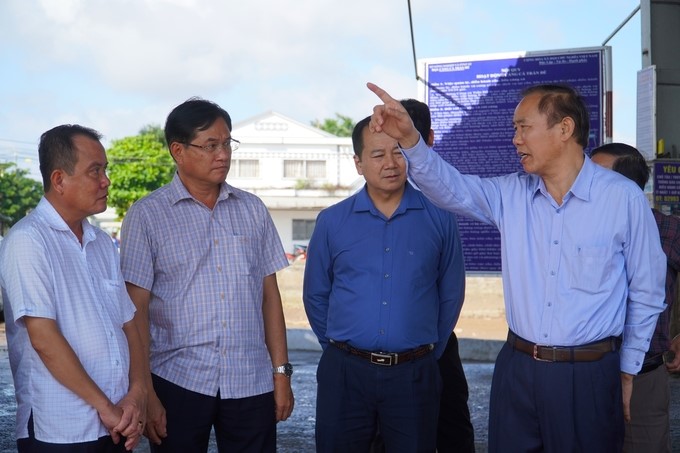
Deputy Minister of Agriculture and Rural Development Phung Duc Tien inspected the actual loading and unloading of seafood at Tran De fishing port (Tran De district, Soc Trang province). Photo: Kim Anh.
Through checking reality at Tran De fishing port (Tran De district) and documents and procedures related to seafood exploitation, specialized agencies under MARD assessed that Soc Trang is one of the localities that controls the fleet quite well, higher than the national average.
Specifically, the Tran De Fishing Port Management Board has assigned officers to be on duty 24/24 hours to receive information about fishing vessels entering and exiting the port; compare the list of illegal fishing vessels; arrange vessels to enter the port; and monitor seafood output unloaded through the port. Accumulated from the beginning of the year, the total number of fishing vessels docking at the port is 1,629; the output of seafood through the port is 29,473 tons (reaching over 63%).
Deputy Minister Phung Duc Tien highly appreciated the attention and leadership of Soc Trang province's leaders in the fight against IUU fishing. With the determination to remove the EC's "yellow card" in 2024, the Deputy Minister suggested that Soc Trang province needs to "think really, speak really, and do really." Of which, focus on managing and monitoring the fleet; implement specifically and in detail seafood traceability (production log, fishing location and form, etc.); and drastically handle administrative violations.
At the same time, MARD's leader requested Soc Trang province to promote dissemination on combating IUU fishing to ship owners, fishermen, and workers. Coordinate with the Department of Fisheries to improve the capacity of professional staff at fishing ports, including investing in equipment to serve their work.
Seriously, effectively, and synchronously implementing regulations on combating IUU fishing, in recent times, Soc Trang province has promptly issued many plans and programs associated with the leader's responsibilities to promptly detect early, far, and prevent right-from-shore fishing vessels with signs of violation, especially illegal seafood exploitation in foreign waters.
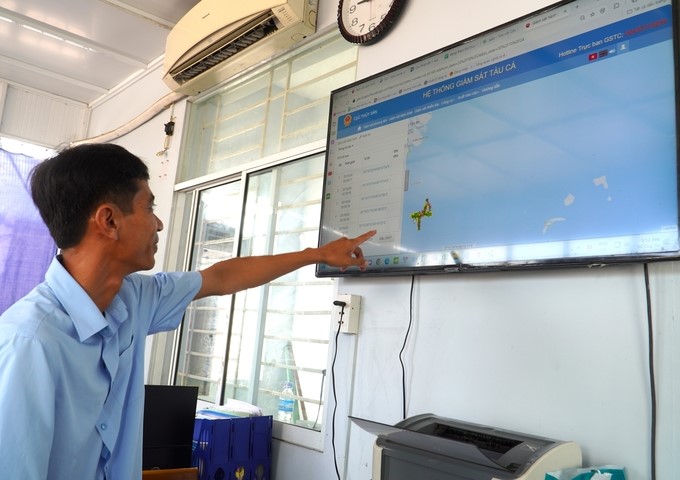
Fishing vessel monitoring system at Tran De fishing port. Photo: Kim Anh.
To date, Soc Trang province has 774 registered fishing vessels. The specialized sector has issued valid fishing licenses to 560 qualified fishing vessels according to regulations. For 214 vessels that have not been licensed due to not having a technical safety certificate, being damaged, or lying on shore for a long time, the locality has made a list to monitor and manage.
Recently, the Soc Trang Department of Agriculture and Rural Development established a team to monitor cruise equipment on fishing vessels to support ship owners in overcoming connection loss errors. At the same time, verify cases of violation of regulations on losing connection with the VMS device.
As of October 2024, Soc Trang has organized six patrols and control of fishing vessels at sea. Thereby, the specialized force directly inspected 155 fishing vessels operating at sea; detected and made 20 records on acts of fishing vessels losing connection at sea; not reporting their location; or not docking at the designated port to load and unload seafood. From there, issue decisions to impose an administrative penalty of VND 156.5 million.
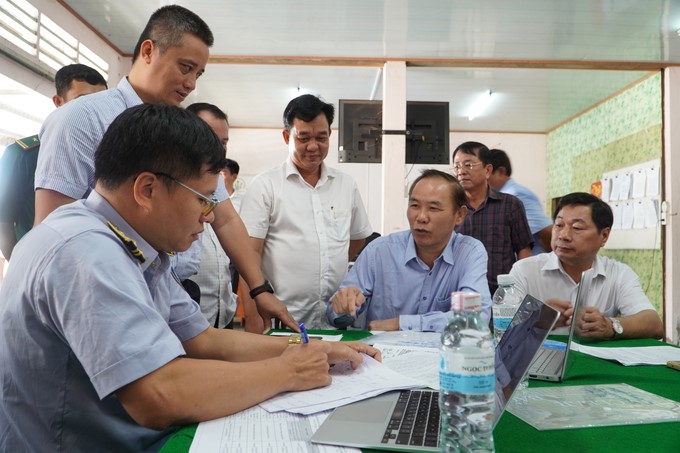
Deputy Minister of Agriculture and Rural Development Phung Duc Tien and leaders of Soc Trang province inspect the recording of fishing vessel management books. Photo: Kim Anh.
Recently, the province's agricultural sector also advised and submitted to the Soc Trang Provincial People's Council to issue a Resolution stipulating the policy to support satellite subscription fees for VMS equipment in the province.
With the above-mentioned efforts, since the beginning of 2023, Soc Trang province has had no fishing vessels illegally exploiting seafood in foreign waters.
Mr. Lam Van Man, Secretary of the Soc Trang Provincial Party Committee, acknowledged that the current implementation of regulations on registration and issuance of fishing licenses in the province is still slow. Besides, the situation of coastal seafood exploitation is ineffective; many owners of fishing vessels with a length of less than 15 m have abandoned the profession.
With the important significance of removing the EC's "yellow card," Mr. Man requested that all levels and branches in the province fully absorb opinions from MARD's working delegation. From there, quickly overcome existing limitations.
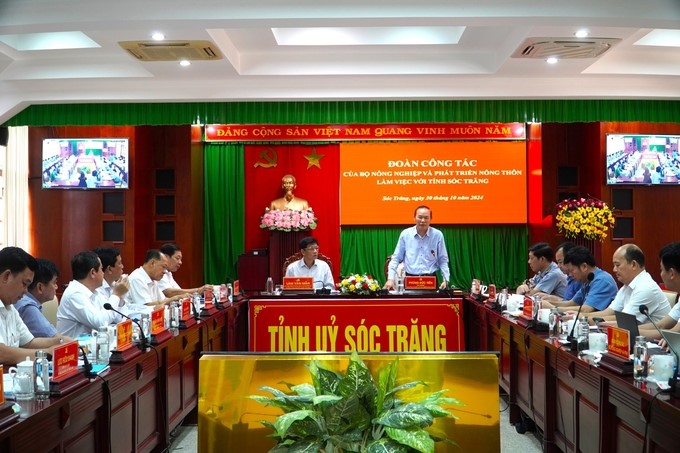
Deputy Minister of Agriculture and Rural Development Phung Duc Tien worked with the Soc Trang Provincial Party Committee on IUU work. Photo: Kim Anh.
Particularly, the Provincial Department of Agriculture and Rural Development coordinates closely and seriously with MARD's specialized agencies to manage, monitor, control, and supervise fishing activities at sea; trace the origin; and strictly handle violating fishing vessels.
On this occasion, Soc Trang province proposed that MARD increase the presence of the Navy, Coast Guard, Border Guard, and Fisheries Surveillance forces in offshore areas to strengthen inspection of fishing vessel activities at sea and prevent violations of IUU fishing. At the same time, support fishermen to feel secure in production and minimize fishing vessel accidents when operating at sea.
Translated by Thu Huyen

(VAN) Livestock production is a cornerstone of agrifood systems, providing essential nutrition and economic opportunities worldwide.
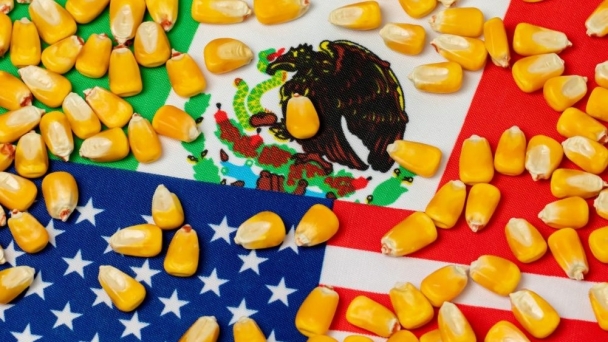
(VAN) With Mexico accounting for nearly 50% of total US corn export sales annually, US corn growers hailed the decision as a major victory.
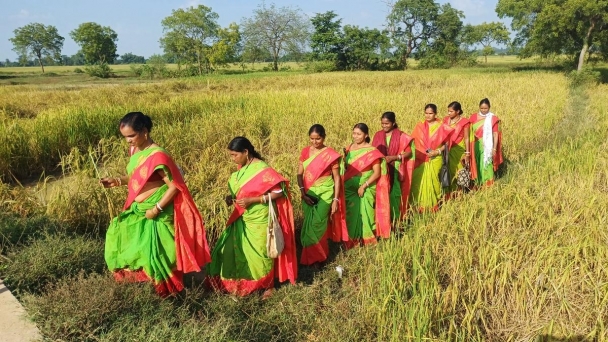
(VAN) Thousands of women in West Bengal’s Jhargram district have set up a farmer producer company, Aamon, cultivating indigenous varieties of paddy without using lab-made fertilizsers.
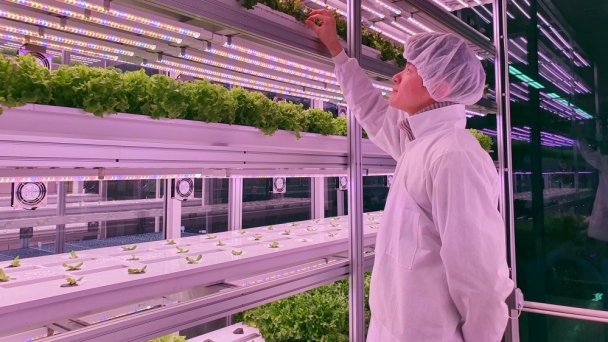
(VAN) Achieving food security and sustainability is a top priority for Saudi Arabia as it works toward building a more inclusive economy.
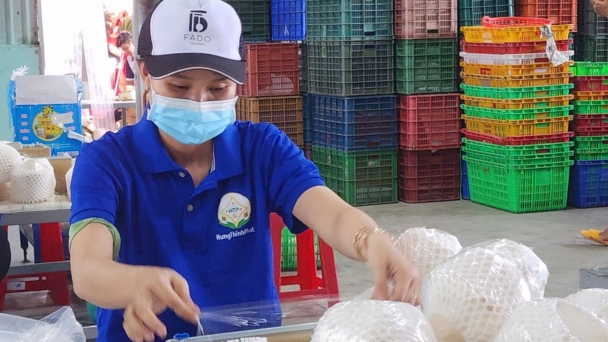
(VAN) Tien Giang province is actively inviting domestic and international investors to explore opportunities in its burgeoning coconut industry, which boasts significant untapped potential.
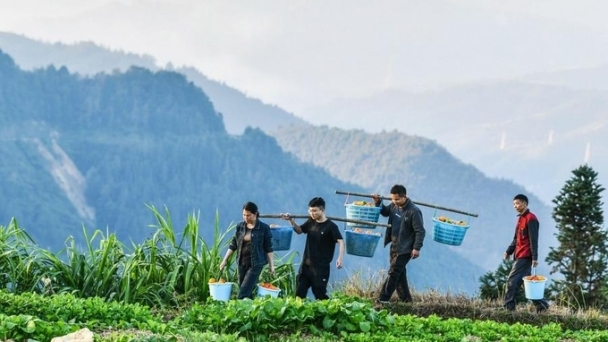
(VAN) Chinese President Xi Jinping has urged further deepening rural reform and making solid advances toward the goal of building up China's strength in agriculture.
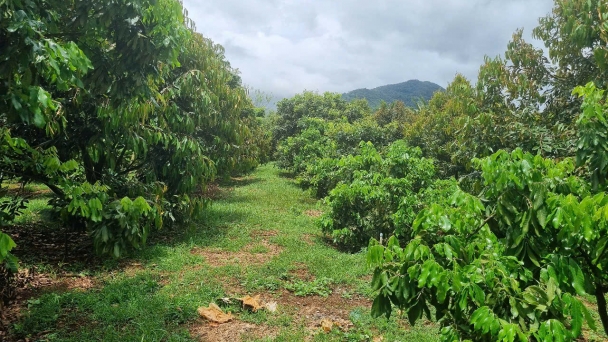
(VAN) Recovering degraded soil is a prolonged, enduring process that demands solutions on mechanisms, policies, infrastructure investment, science technology and agricultural extension, etc.